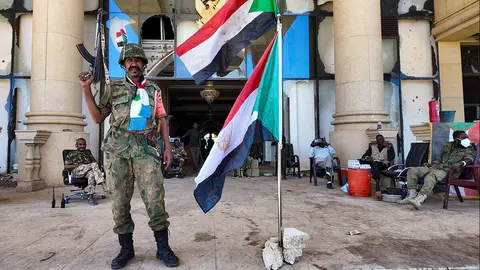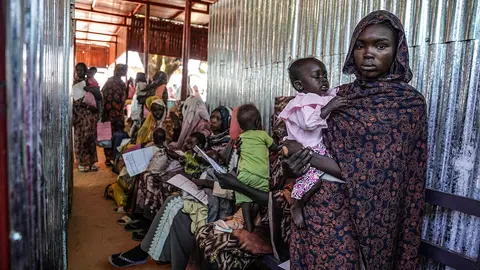International mobilisation for Sudan
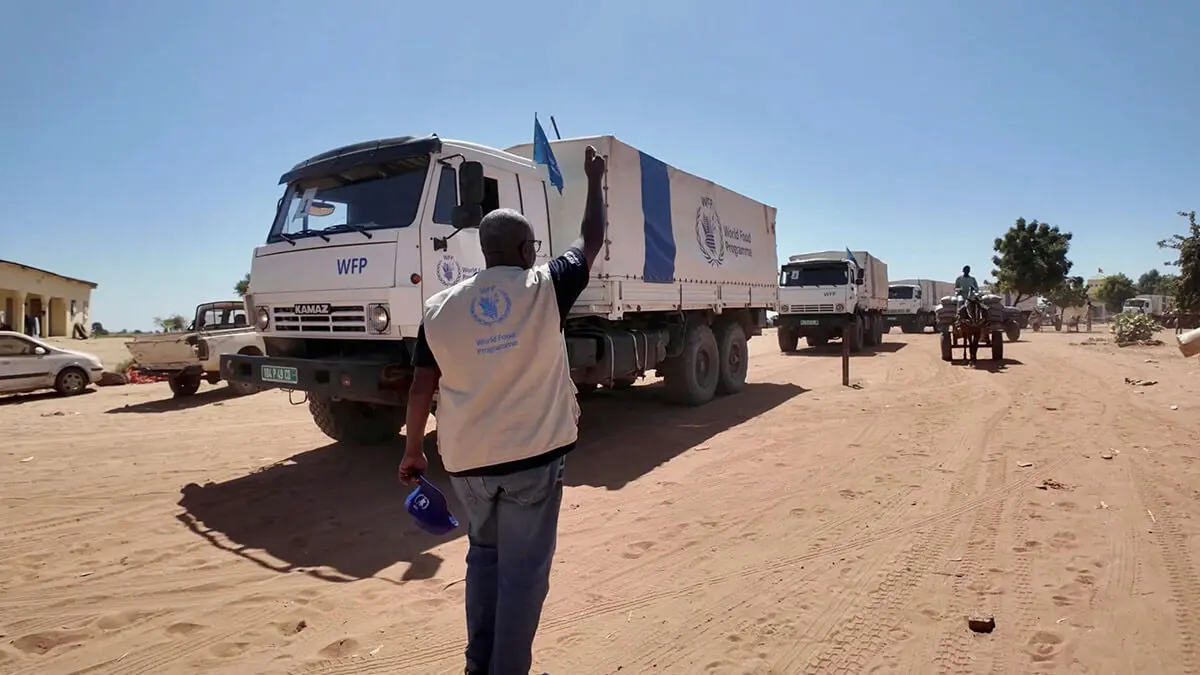
Fifteen countries, together with the European Union (EU) and the African Union (AU), took part in an international conference in London, United Kingdom, to discuss an economic aid package for Sudan, a country mired in a serious civil war that is leaving one of the worst humanitarian tragedies in the world, as recognised by the United Nations (UN) itself.
The message at the international conference was clear: an end to the armed conflict in Sudan and an end to the extreme suffering of the population, already severely punished by the poverty that exists in the African country.
In its closing statement, the conference called for an ‘immediate and permanent ceasefire’, emphasising the ‘need to avoid the division of Sudan’.
All this after two years of civil war between the Sudanese Army, commanded by Abdel Fattah Al-Burhan, and the paramilitaries of the Rapid Support Forces (RSF), led by Mohamed Hamdan Dagalo, known as Hemedti.
The war in Sudan has caused the world’s worst humanitarian crisis.
— David Lammy (@DavidLammy) April 15, 2025
Millions are in turmoil.
Innocent civilians are in desperate fear for their safety.
I'm bringing together the international community to end the violence and improve humanitarian access. pic.twitter.com/oQt9G1gzYL
The conflict began in April 2023 between these two factions fighting for power in the Sudanese country, after a failed democratisation process that was led precisely by Abdel Fattah Al-Burhan, the country's strongman, who once promised to develop a civil-military process to draw up a constitution and hold democratic elections that would lead to a civilian government representative of the Sudanese people.
The turbulence in Sudan goes back a long way. In 2019 Omar Al-Bashir was overthrown, his regime, which lasted three decades, was characterised by abuse, persecution, repression and corruption. It was the Armed Forces themselves that brought about the fall of Al-Bashir and the beginning of a democratising process led by Abdel Fattah Al-Burhan. A process that blew up in 2021 when Al-Burhan himself led a coup against the established government of Prime Minister Abdalla Hamdok. This situation led to another phase of constitutionalist intentions and the intention to hold elections under the supervision of Al-Burhan, who had become president of the so-called Sovereign Transition Council.
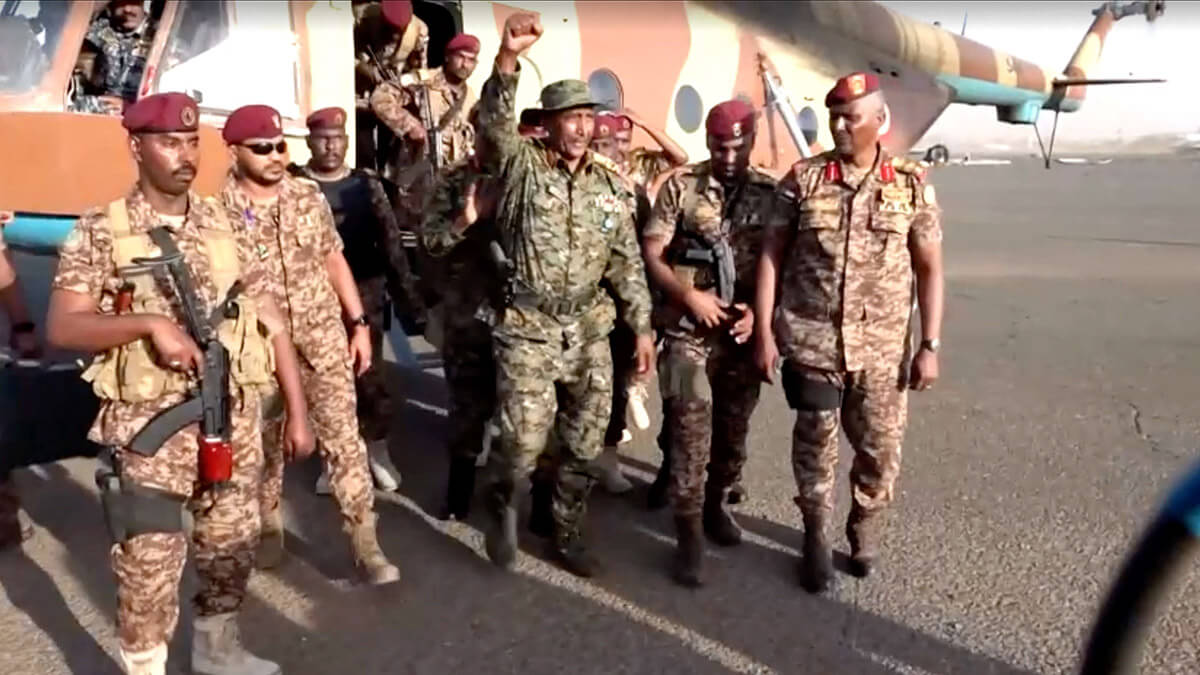
After this episode, stability did not come to Sudan and dissensions within the Armed Forces ended with the outbreak of the current civil war in April 2023, which pits Al-Burhan's army against the paramilitaries of Hemedti's Rapid Support Forces.
A civil war that has already left more than 20,000 dead and more than 14 million refugees, one of the most serious humanitarian crises in the world, as the UN itself has recognised.
Faced with this situation, the international community has mobilised and the international conference held in London has managed to raise 800 million euros to assist the Sudanese country, where there have already been tens of thousands of deaths and millions of people are going hungry, including millions of children. It is estimated that up to 15 million minors are in need of humanitarian assistance. This is a figure to be taken seriously because we have to bear in mind that the population of Sudan is 50 million.

This figure of 800 million euros, confirmed by sources such as Agence France Presse, is in addition to the 2 billion that was raised last year at another similar conference held in Paris, France.
‘We simply cannot look the other way,’ said British Foreign Secretary David Lammy at the opening of the conference, which was co-organised by Britain, the EU, Germany, France and the AU.
‘Many have left Sudan, and this is a moral mistake, given the number of civilian deaths, the number of babies barely a year old who have been victims of violence and the number of people threatened by hunger, which exceeds the levels recorded anywhere else in the world,’ he added.
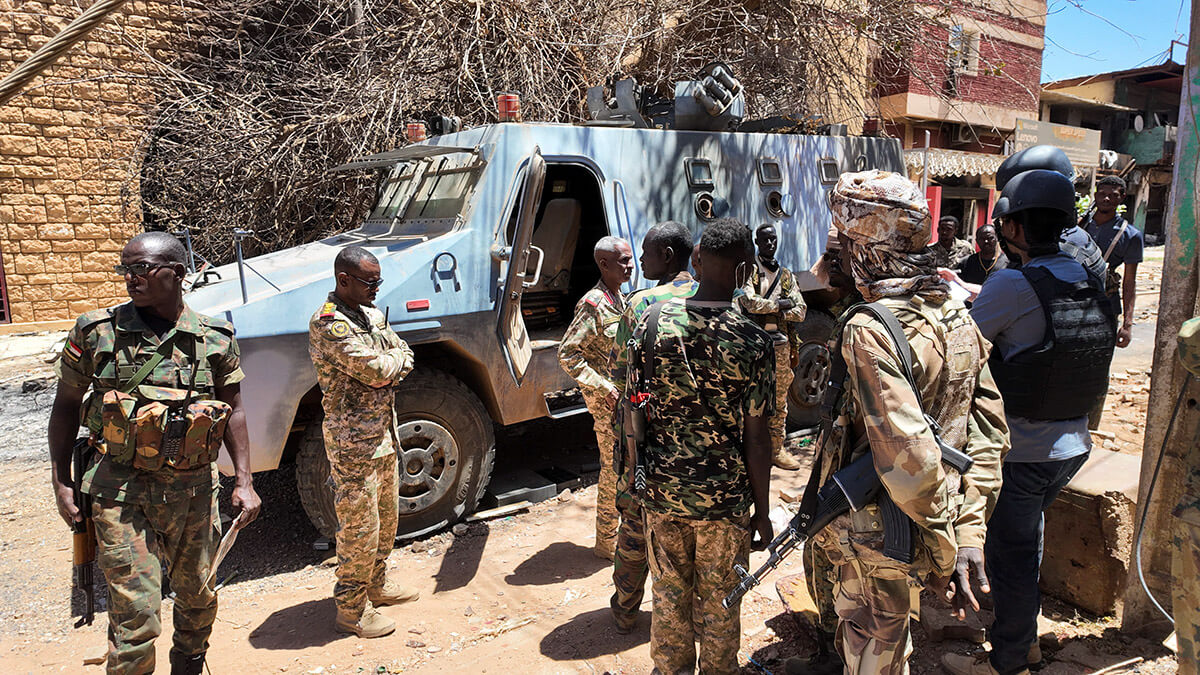
Other international bodies have also demanded an immediate ceasefire in Sudan to stop the humanitarian tragedy in the African country. This is the case of the G7, an intergovernmental political and economic forum made up of Canada, France, Germany, Italy, Japan, the United Kingdom and the United States, together with the EU, which has permanent representation in the group. This group has urged for a halt to the crisis in Sudan, ‘strongly condemning’ the ongoing civil war and the abuses perpetrated by the warring factions.

